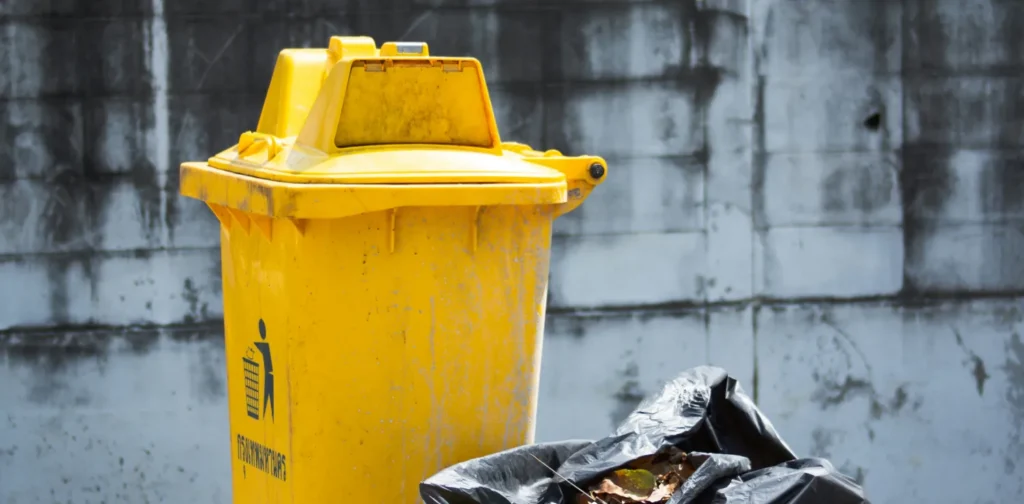Looking into Household Waste Behavior Change

Photo by Firre Jue on Unsplash
Urbanization has been the trend for decades, and it will not stop anytime soon. As a region with rapidly rising economies, around 3.4 billion people in Asia are expected to live in urban areas by 2050. Consequently, urban waste will pile up more and more. Tackling urban waste requires addressing it from every level, including households. While the issue’s focus is at the individual level, true household waste behavior change is more complex. So, how can we achieve it?
Accumulation and Mismanagement
A UNEP report predicts that between 2020 and 2050, municipal solid waste will increase from 2.1 billion tons to 3.8 billion tons yearly. Unfortunately, most of this waste will not be processed, with far less than 1 billion tons recycled or converted into energy.
Among the ASEAN countries, Singapore generates the most municipal solid waste per capita at 3.8kg/day, and Thailand is the fourth highest at 1.05kg/day. However, 2025 predictions see Thailand becoming the largest waste producer. The country’s organic waste, such as food waste, accounts for the highest proportion at around 64%. Plastic comes second (17.6%), with a worrying 7–8% annual increase.
Furthermore, waste mismanagement is a prevalent issue in Asia. It is all too common to see open burning and overflowing landfills that result in severe air, soil, water, and ocean pollution. Besides harming the environment, pollution also negatively impacts human health.
Case Study: Household Waste Behavior in Bangkok
A paper by the Stockholm Environment Institute (SEI) looked into waste management in two Bangkok districts, Bang Kapi and Khlong Toei. These districts generated over 114,000 and 99,000 tonnes of waste, respectively, way higher than Bangkok’s average of 68,319 tonnes. This study surveyed informal waste workers, junkshops, and households to understand relevant material, social, and behavioral perspectives on waste management.
In the context of household waste, 83% of waste generated was organic waste, such as food waste. Meanwhile, only 11% of the organic waste was composted. In terms of household waste behavior, 92% of respondents agreed that “household waste sorting should be done by everyone”. However, the study indicated a “value-action gap”, with actual rates of waste sorting at 25%.
Key Motivations
Economic motivation emerges as one of the key factors for household waste separation, especially for low-income households. These households sort their waste and sell it, adding to their income.
Another key factor is the feeling of collective action. A strong sense of community and civic responsibility becomes a reason for good household waste behavior. On the flip side, people feel discouraged by the lack of support from the government or when they see others not doing their part. A household respondent said, “I’m willing to put in the effort, but there must be action from the waste authorities. Otherwise, acting at the individual level feels discouraging.”
Meanwhile, only one respondent from the study mentioned climate change or environmental pressure as their reason. The paper concluded, “This implies that for lower and middle socioeconomic groups in Bangkok, issues of climate change and environmental degradation are not relevant to their day-to-day lives and may be an ineffectual driver of behavior.”
Supporting Behavior Change
The main barriers to good household waste behavior, particularly sorting and recycling, include lack of time, opportunity, facilities, information, and other incentives. Additionally, distrust in the system and other waste stakeholders hinders an individual’s willingness to join the effort.
So far, the bulk of recycling efforts in Bangkok and other similar cities come from the private sector. While this landscape supports the livelihoods of the urban population, it will not be enough to support meaningful behavior change and achieve a circular economy.
Therefore, governments and policymakers are responsible for creating an environment that enables behavior change. Regulating the industries, making circular waste structures, and implementing incentives, taxes, and fines are among the ways to create an efficient urban waste management system. It is also essential that within this system, informal waste workers are recognized as a critical actor and empowered, such as by involving them in decision-making and improving their quality of life.
Additionally, educational campaigns and training programs are needed to address the knowledge gap in waste behavior, such as composting, reusing waste materials, and generating income from waste sorting. This will be particularly helpful for low- to middle-income households. Lastly, raising climate change and environmental awareness will be worthwhile for long-term norm changes. While this approach and its resulting actions can benefit everyone, they will be especially suitable for youth and those who want better for themselves and their planet.

Co-create positive impact for people and the planet.
Amidst today’s increasingly complex global challenges, equipping yourself, team, and communities with interdisciplinary and cross-sectoral insights on sustainability-related issues and sustainable development is no longer optional — it is a strategic necessity to stay ahead and stay relevant.


 Strengthening Resilience amid Growing Dependence on Space Infrastructure
Strengthening Resilience amid Growing Dependence on Space Infrastructure  Indian Gig Workers Push Back Against 10-Minute Delivery Service Strain
Indian Gig Workers Push Back Against 10-Minute Delivery Service Strain  Call for Governance: Grassroots Initiatives Look to Scale Efforts to Conserve Depleting Groundwater
Call for Governance: Grassroots Initiatives Look to Scale Efforts to Conserve Depleting Groundwater  Integrating Environment, Climate Change, and Sustainability Issues into Education Systems
Integrating Environment, Climate Change, and Sustainability Issues into Education Systems  Finally Enforced: Understanding the UN High Seas Treaty
Finally Enforced: Understanding the UN High Seas Treaty  Risks and Opportunities of Submarine Communication Cables for Sustainable Development
Risks and Opportunities of Submarine Communication Cables for Sustainable Development